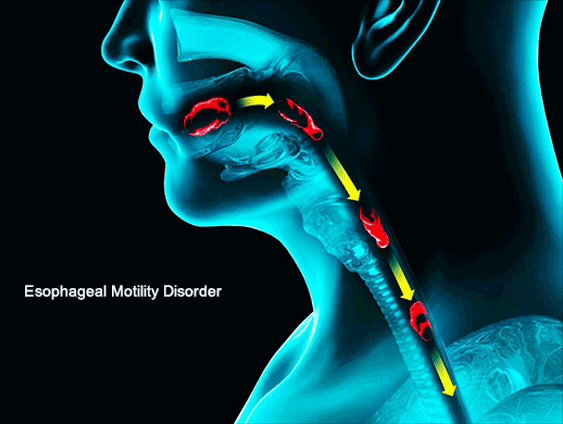Herbal Treatment of Esophageal Motility Disorder (EMD)
Abstract
The tongue generally pushes food and liquids from the mouth toward the throat. Food and liquids pass through the esophagus, a tube that connects the throat to the stomach. To prevent food and liquids from entering the stomach, the esophageal muscles contract and release in a wave-like manner. Foods and liquids pass through the esophagus more slowly if you have esophageal dysmotility. As a consequence, swallowing problems emerge.
Introduction
An esophageal motility disorder (EMD) is a medical condition that causes difficulty swallowing, food regurgitation, and spasm-like discomfort in the esophagus, which may be caused by an allergic response to particular foods. Dysphagia is the most well-known one. This is a rare condition with an unknown origin; nevertheless, it is often associated with viral, autoimmune, and neurodegenerative causes. Achalasia is a chronic and incurable illness, according to current understanding.

Types
Dysphagia may affect both solid and liquid swallowing. Occlusions such as esophageal cancer, esophageal web, or stricture cause solid dysphagia.
- Solid and liquid dysphagia is caused by esophageal motility disorders (or dysmotility) in the upper esophagus (myasthenia gravis, stroke, or dermatomyositis) or lower esophagus (systemic sclerosis, CREST syndrome, or achalasia).
- Achalasia is the most frequent kind of dysphagia, and it’s caused by esophageal nerve atrophy. The muscles of the esophagus cease functioning, making it impossible for the valve at the bottom of the esophagus to open correctly.
Risk Factor
Those who experience the following symptoms are at risk of esophageal dysmotility
The following are some examples of esophageal motor disorders:
- Spasticity of the esophagus in which esophageal contractions become uncoordinated.
- Achalasia is a condition that occurs in a person in which the lower esophageal sphincter does not relax.
Disorders of the nervous system or the muscles, including:
- Amyotrophic lateral sclerosis (ALS)
- Multiple sclerosis is a disease that affects the nervous system.
- Myasthenia gravis is a muscular disorder that affects the arms and legs.
- Peripheral neuropathy is a kind in which the peripheral nerves are affected.
- Polymyositis and dermatomyositis are two kinds of myositis that are often seen.
- Charcot-Marie-Tooth disease (CMTD) is a long-term inflammatory disorder that causes muscular dystrophies.
- Muscle atrophy in the spine
What Are the Signs and Symptoms?
Esophageal dysmotility may cause the following symptoms:
- Achy chest
- Heartburn
- Swallowing difficulties
- Regurgitation
- Pneumonia episodes
- The sensation of food being lodged in the throat or chest.
- Nutritional deficiency and weight loss
What Causes Esophageal Dysmotility?
An ulcer, stricture, irritation, infection, inflammation, or cancer in the esophagus are all potential causes of esophageal dysmotility. Muscles in the mouth, throat, or esophagus that are jerky or aberrant. A weakness of the mouth, tongue, or throat muscles caused by a nerve or brain issue (such as a stroke) (or changes in how they coordinate)
Treatment
EMD does not have a treatment, but the symptoms may be controlled. Certain symptom therapies involve eating more slowly and in smaller bits; in some situations, drugs, such as a smooth muscle relaxant for muscular difficulties, may be helpful in managing other disorders that contribute to EMD. However, Ayurveda offers a natural and herbal treatment for the discomfort caused by esophageal motility issues. As a result, you will be able to get respite from the sickness brought on by this ailment, which may be excruciatingly painful. As a result, Planet Ayurveda provides true Ayurvedic therapy.
Planet Ayurveda has all you need to know about it.
Planet Ayurveda manufactures herbal medications that follow Ayurvedic principles to the letter. Only natural components are used in the formulation of our herbal supplements. This organization’s major purpose is to find and remove any disease’s cause. The use of a few natural therapies from Planet Ayurveda may help with esophageal motility disorder (EMD).

Product Description
1. Avipattikar churna
It is an Ayurvedic medicine that is used to treat disorders that impede the digestive and excretory systems’ natural functioning. It reduces acid production in the gastrointestinal system, which might induce discomfort owing to esophageal motility dysfunction (EMD). Amla (Emblica officinalis), Pippali (Piper longum), Nagarmotha (Cyperus scariosus), and other plants are present.
Dosage: 1 teaspoonful two times a day is the recommended dosage.
2. Mahashankh vati
It possesses anti-inflammatory, haematinic, sedative, cholagogue, digestive, appetizer, and carminative properties. It may also be used to treat dyspepsia caused by swallowing difficulties. The main constituents in this herbal blend are Tamarind Bark, Pippali, and Shunthi.
Dosage: Take 1-2 tablets with a glass of lukewarm water twice or three times a day.
3. Digestoplan Syrup
It eliminates painful stomach muscular spasms by relaxing the smooth muscles of the abdomen. This syrup helps to alleviate stomach bloating by expelling gas from the intestines. There are standardized extracts of Amalaki (Emblica officinalis), Ajwain (Trachyspermum ammi), Marich (Piper nigrum), and other herbs in it.
Dosage: Take 1-2 teaspoon twice a day or as directed by your Ayurvedic practitioner.
4. Acidoplan Syrup
Acidoplan Syrup from Planet Ayurveda is a herbal and liquid formulation for the treatment of acidity, which may be caused by EMD. It swiftly enters into the body, providing relief right away. Patola (Trichosanthes dioica), Ghrit Kumari (Aloe barbadensis), Kokum (Garcinia indica), and other herbs are used in this formula.
Dosage: Take 1-2 teaspoons twice a day or as directed by your Ayurvedic practitioner.
5. Digestion support
It helps to assist the digestive system as a whole. It causes digestive fluids to be secreted by the liver, pancreas, and intestines. Some of the mystical plants that it includes are Saunf (Foeniculum vulgare), Dhania (Coriander sativum), and Pippali (Piper longum).
Dosage: Take 1 capsule twice a day after meals with plain water.
Contact my assistant to provide you the costing / ordering and delivery information at – costing.planetayurveda@gmail.com or call at +91-172-5214040 Or Check Website – www.PlanetAyurveda.com
Conclusion
These herbal combinations may be used to combat the side effects of long-term allopathic drugs and therapies, as well as provide relief from the underlying cause of esophageal motility problems (EMD). To begin, go to Planet Ayurveda to purchase and learn more about authentic Ayurvedic products. Herbalremedies123@yahoo.com is the address for our clinic in Mohali, Punjab.






